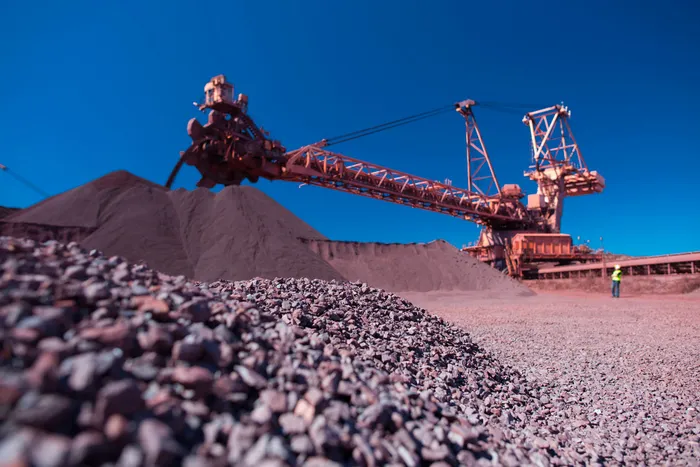Kumba Iron Ore eyes growth despite market challenges
MINING

Although revenues for the half year period to June 2025 were 4% softer, Kumba is banking on improved operational performance, increased sales and consistent production to attain its full-year production guidance of 35 to 37 million tons.
Image: Supplied
Kumba Iron Ore said on Tuesday that it remained poised for growth, fortified by robust demand for steel and high-quality iron ore products, despite a landscape marked by global economic uncertainty and shifting market dynamics.
This optimism was articulated by Kumba's CEO Mpumi Zikalala following the company’s announcement of an impressive interim cash dividend of R5.3 billion.
Kumba declared an interim dividend of R16.60 per share for the period ending 30 June 2025 despite revenues declining by 4% to R34.5bn after basic headline earnings per share slightly fell to R22.26.
Half-year earnings before interest, depreciation and amortisation (Ebitda) amounted to R16bn.
The dip in revenues has been attributed to a 6% reduction in the average realised Free On Board (FOB) iron ore export price to $91 per wet metric ton compared to the same period last year as well as a stronger exchange rate.
However, the Anglo American-owned firm earned a premium of $7 per wet metric ton during the period compared to $1 in 2024. Shares in Kumba Iron Ore surged 4.9% to R310.16 in afternoon trade on the JSE on Tuesday.
This has placed Kumba Iron Ore’s realised price 8% above the benchmark FOB export price of $84 per wet metric ton, with Zikalala saying that demand prospects still favoured premium producers.
“The world needs steel to build, grow and develop, and iron ore is a key ingredient in steelmaking. Kumba’s high-quality lump iron ore products are unique and play a critical role in the manufacturing of carbon light steel products,” said Zikalala.
Global markets for steel outside of China, particularly in Europe, were nonetheless under pressure due to increased availability of the Chinese steel in the traded market.
This has forced Kumba Iron Ore to reduce sales to these markets to 42% of total sales as China’s share of export sales ramped up to 58%.
Although revenues for the half year period to June 2025 were 4% softer, Kumba is banking on improved operational performance, increased sales and consistent production to attain its full-year production guidance of 35 to 37 million tons.
This comes as Kumba has made “progress on our strategy of unlocking value from our core assets” on the back of cost and capital” discipline.
As revenues dipped, Kumba has placed greater focus on lowering costs and it said it was on track to achieve its C1 unit cost target of $39 per wet metric ton. Over the half-year, the company accrued cost savings of R661 million.
Kumba’s unit cost guidance for Sishen is at R510 – 540 per dry metric ton while Kolomela’s is at between R430 and 460 dry metric ton.
On the logistics front, Zikalala said despite an unscheduled shut to repair a stacker-reclaimer, overall equipment availability at Saldanha Bay Port had improved compared to the same period in 2024.
Sales for the quarter to end June firmed up by 8% compared to the first quarter, bringing up Kumba's total sales for the half-year period by 3% to 18.7 million tons.
Shipping costs decreased by 18% though to R3.5bn due to lower freight rates of $15 per wet metric ton.
Total finished stock was subsequently broadly flat at 7.4 million tons while mine stock levels reduced by 500 000 tons 6.4 million tons. Stock at the Saldanha Bay port increased to 1 million tons compared to 500 000 tons as at the end of December.
“The recovery of the logistics network is critical to the health of the value chain. We are also encouraged by the pace of logistics reform through Private Sector Partnership,” said Zikalala.
Analysts are of the view that “Kumba is a good pick” due to its debt-free status, high grade iron ore deposits complemented by large amounts of lumps. Moreover, “lump ore is interesting for steel plants to avoid sintering,” while “railway issues will be solved” amid expectations of a recovery in iron ore prices.
BUSINESS REPORT